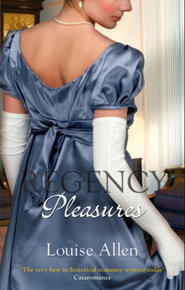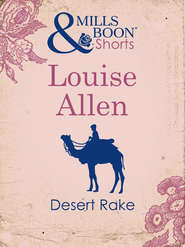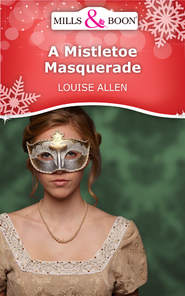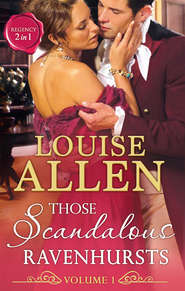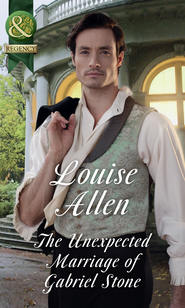По всем вопросам обращайтесь на: info@litportal.ru
(©) 2003-2024.
✖
A Most Unconventional Courtship
Настройки чтения
Размер шрифта
Высота строк
Поля
Alessa found the steward without difficulty. As usual at this time of day he was in his cool office facing into the courtyard. ‘Good morning, Kyria Alessa. I have your money here for last month’s laundry. Are the children well?’ He counted out the coins, the familiar muddle of Venetian and French currencies, and handed her his quill with a smile. As always, Alessa made the point of producing a careful squiggle, which could be taken as a signature or a mark.
‘Very well, thank you, Mr Williams. Shall I leave the salve that Dr Pyke ordered with you?’
‘Certainly.’ He helped her unpack the pots from under the piles of ironed laundry. ‘Would you care to leave that washing with me as well?’
‘Thank you, but I will take it up to the housekeeper. There are one or two things I would like to draw to her attention.’
She left him with a smile, hefting the basket that was considerably lighter now the jars had been removed. The household was quiet, only the subdued bustle of servants going about their business disturbing the calm that Sir Thomas insisted upon when he was working in his study. He did not always get it, of course, not when his widowed relative, Lady Trevick, and her two daughters were entertaining.
They must all be out, she mused. They had probably taken their new guest with them in the landau to show him the sights, and to allow him to admire the Misses Trevick to their best advantage under pretty new sunbonnets. As she rounded one corner of the cloister, making for the stairs to the housekeeper’s room, she was congratulating herself upon taking such a detached, ironic, view of his lordship.
‘Alessa.’ It could not be anyone else. Even the one word was distinctive in that pleasant, lazily deep voice that seemed to her fancy to be the same brown as his eyes. She dropped the basket. By some miracle it landed squarely on its base and none of the pristine items fell out.
Chance was half-sitting, half-leaning, on the low inner wall that separated the shaded cloister walk from the open garden in the centre. ‘I am sorry, I did not mean to startle you.’
‘My lord.’ He stood up, taking all the weight on his uninjured leg, and she realised he was dressed like the sailors on the English ships that crowded the harbour under the walls of the Paleó Frourio. Only none of the sailors would be dressed in loose cotton trousers and linen shirt of quite such fine cloth and pristine white finish. He was hatless, that intriguing tortoiseshell hair glinting in the sunlight.
‘No harm done, my lord.’ To pick up the basket and bolt, as her nerves were screaming at her to do, seemed gauche, so she left it and stood waiting, feeling at a disadvantage. Who would he be today? The man who talked so easily with her while he whittled ridiculous animals out of soap? The intense, almost angry man who had spoken of jealousy? Or was he, on his own ground, going to prove to be one of those English aristocrats she had learned to despise—cool, remote, arrogant? ‘Are your injuries less painful today?’
Her eyes were regaining their focus. He did look better. The lines of strain around his eyes had gone and his colour was healthier. ‘They are much improved. The hip joint is much more comfortable, although the bruise is spectacular. My ankle is still painful, but Dr Pyke promises me rapid improvement if I will only rest it.’
‘Good, I am sure he is right.’ His feet were bare, she realised with a shock—long-boned and elegant like his hands. It was the most sensible thing, of course, with one ankle bandaged, but somehow it seemed shockingly intimate. Alessa dragged her eyes away, trying to forget the feel of his unconscious, naked body under her hands. The look of his body…Then, until Kate had commented, she had thought of nothing but his injuries, now she could no longer maintain that indifference.
She began to back away.
‘No, please do not go. Have you brought me my clothes back?’
‘Yes.’ Alessa nodded to the basket. ‘They are in there. I should—’
‘Please sit down.’ He patted the wall beside him. ‘Have a glass of lemonade, if you would be so kind as to fetch it.’
‘It would not be proper.’
‘Why ever not? I am not inviting you back to my bedroom, for goodness’ sake.’ His shirt was open at the neck, showing just a hint of dark hair. His trousers were belted tight, emphasising narrow hips and taut waist. Alessa was certain she was blushing.
‘Because of my position here,’ she said stiffly. Any minute now Mr Williams might come out of his office.
‘You are not a servant. Why act like one?’ The deep brown eyes were amused. It was all very well for him—he did not have to tread a careful line between familiarity and subservience in the most important household on the island.
‘I provide a service here. I am expected to know my place.’ She said it without rancour; she did not envy them their lives, their position.
‘And I am asking you to sit down, drink lemonade with me and keep me company for a few minutes. That too would be a service. If you wish, I will pay for your time. You are not in your own home, so I can offer remuneration without risking your wrath, can I not?’
Defeated, Alessa went to fetch the tray, set it on the wall and sat down. Beside her an orange tree in a pot gave out its sweet fragrance and she bent her head to inhale.
‘They flower at the same time as they fruit—I had not realised that.’ Chance was twisting to reach the jug of lemonade. Alessa jumped to her feet and stretched across him to take it before he hurt his hip, realising too late that it brought them almost face to face.
She could smell the tang of limes, not from any tree, but from the cologne he was using. Seizing the jug in both hands, she moved round to pour it at a safe distance. ‘Limes are the same,’ she blurted out. ‘And lemons. Grapefruit as well, I believe.’ I’m prattling. She stopped talking and handed Chance his glass carefully by the base so there was no opportunity for their fingers to touch.
Back on her perch, she raised her glass to her lips. The sweet-sharp shock of the drink jerked her back from the turmoil that his closeness and the scent of him had stirred up. It was ridiculous. She was among men every day. With some of them she massaged their naked shoulders, or dressed injuries on their bare limbs. None of them made her feel like this, as though one word would tumble her into his arms…
‘Alessa, what is your real name?’ He said it in so conversational a tone that she responded before she could think.
‘Alexandra—’ She caught herself just in time.
‘And you are English? You would not answer me before.’
‘My father was English.’ She took another mouthful of lemonade. No one in Corfu Town except Kate knew the truth. Why am I telling him?
‘And your mother? Was she Greek?’ She found she was watching the firm, expressive lips as he spoke.
‘French.’ His lips parted fractionally in surprise. He did not expect that. ‘My father met her long before he came to Greece or the islands. She died when I was very young.’
‘It cannot have been easy for them, with England at war with France. But of course, she was a Royalist sympathiser, a refugee in England, I presume.’
‘Oh, no. Papa picked her up—quite literally—in France in ‘93. Her husband had been killed in the revolt in the Vendée; Papa found her near Niort.’
‘Good God, that must have caused difficulties!’
‘Not really. The General was dubious, but Maman was so very charming and Papa was always extremely unconventional, so he shrugged and did nothing. She followed the drum, even after I was born. I have been to England a few times, but I hardly recall it. Then, when she died when I was twelve, I just stayed with him. It made his disguise more convincing. He changed my name to Alessa then.’
Alessa came out of the haze of memories conjured up by telling the story to find Chance staring at her with dawning comprehension. ‘There were no British troops involved in the Vendée—not regular British troops, in any event. You are an officer’s daughter. An intelligence officer’s daughter.’
‘Yes.’ There was no point in denying it now. ‘We’d been in and out of the Ionian islands for years on missions, but we settled on Corfu in 1807 when the French regained it. Papa would use his boat at night to rendezvous with English agents. He had a reputation locally as a smuggler, which helped.’
‘But he could have been shot! Is that what happened in the end?’
‘No.’ Alessa shook her head, giving herself a little time to steady her voice. Even now, it was hard to speak of. ‘He took the boat out one night, out towards Albania for a meeting. A storm blew up, as they do hereabouts, very sudden, very fierce. He never came home.’
Chapter Five
She had done it now, told Chance almost everything, as much as she had confided to Kate. Madness.
‘Alessa—’ She threw up a hand as if to ward off his sympathy and he caught it in his. ‘Alessa, why are you still here? Where are your family?’
‘Here. Dora and Demetri are all my family now,’ she said doggedly, her eyes fixed on the orange tree. It was the truth in every way that mattered.
Chance had trapped her hand, palm down between his. ‘But you must have relatives in England! Aunts, uncles, cousins—someone, for heaven’s sake. They cannot know that you are alone like this, surely?’
‘Papa did not wish…after Mama died…They did not want me,’ she burst out hotly. ‘I do not want them.’
‘And so you married a local man,’ he stated. ‘Was it for love or for security?’ His voice was oddly flat.
Alessa turned her head away, avoiding answering. He still thought her a widow and it seemed safer that way, although she was not sure why. But she did not want to lie to him.
‘Well, you are not married now,’ Chance said briskly. ‘Tell me your maiden name and we will make enquiries. Sir Thomas will have all the right reference books, we will soon see who to contact in England.’
‘No.’ She made herself meet his eyes. ‘No.’ The idea horrified her—could she ever make him understand? No, of course she could not. The Earl of Blakeney would be no more capable of that than he was of flying. He was English, an aristocrat, a man. To him home and family meant wealth, position, security, independence. For her it meant a kind of imprisonment in a foreign country, and the aching fear that they—whoever they were—would take the children away.






